Successful scientific research is rarely a one-person endeavor, particularly when the research is interdisciplinary in nature, or requires field or laboratory investigations in multiple environments. The collaborative nature of modern ocean science research is evident in a recent publication in Science Advances, the peer-reviewed scientific journal published by the American Association for the Advancement of Science.
A Trio of Presentations
February 26, 2018
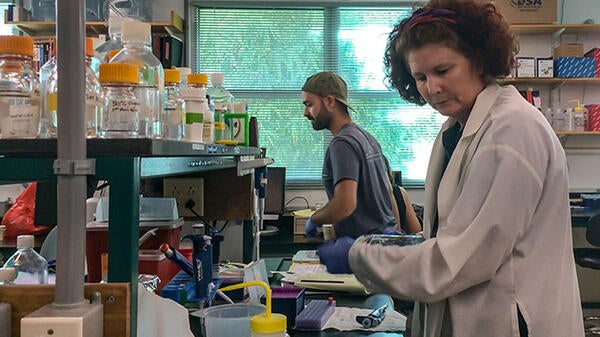
Three students who have worked as interns with BIOS microbiologist Rachel Parsons since 2016 will present their research findings this month at the Ocean Sciences meeting in Portland, Oregon.
High School Student Achieves Scientific Success at BIOS
March 27, 2018
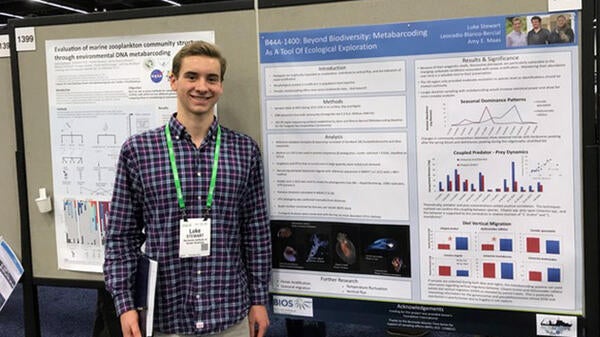
It’s not every day that you meet a high school student who already has three summers of scientific research, as well as a poster presentation at a professional scientific conference, under his belt. But Luke Stewart isn’t your average student.
A New Vehicle Tests Bermuda’s Waters
April 27, 2018
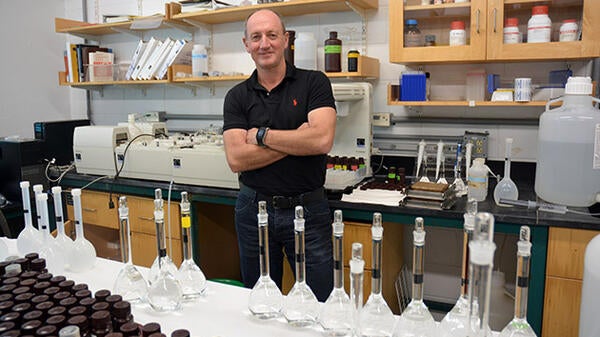
BIOS oceanographer Rod Johnson is the chief scientist on board a cruise this month offshore Bermuda using a new underwater vehicle designed to reduce costs and improve science efficiency at sea, while gathering samples for biological and chemical analyses from the ocean water column.
Celebrating 40 Years of the Oceanic Flux Program
April 27, 2018
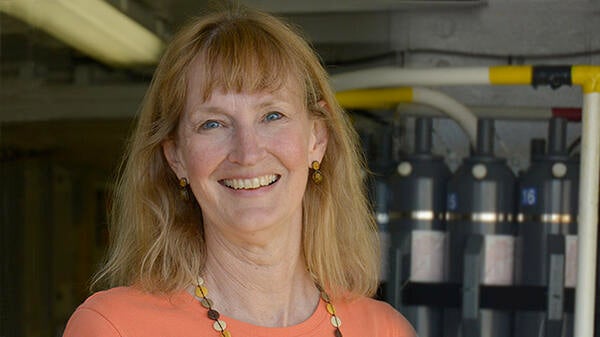
In April, the Oceanic Flux Program (OFP), the longest running deep ocean time-series of its kind, marked its 40th year of operation. Since 1978, the OFP’s three sediment traps have continuously sampled sinking particulate debris, called particle flux, at depths of 1,640; 4,900; and 10,500 feet (500; 1,500; and 3,200 meters) at a location about 45 miles (75 kilometers) southeast of Bermuda.
By the Numbers: A Look at BIOS’s R/V Atlantic Explorer
June 27, 2015
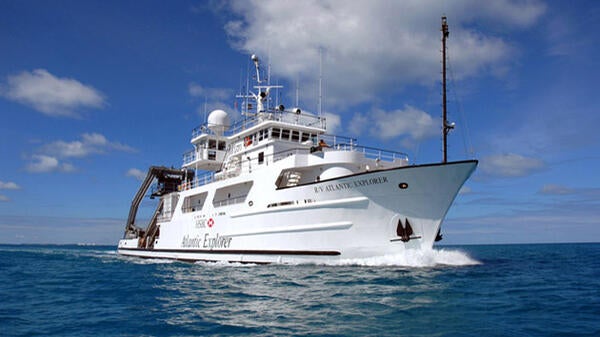
Ten years ago this fall, BIOS purchased a 168-foot submersible support ship from Harbor Branch Oceanographic Institute in Florida, reconfigured lab and deck space, modified it for science work offshore Bermuda, and 18 months later sailed the converted oceanographic research vessel into its new homeport in St. George’s, Bermuda. Since then, that vessel—renamed research vessel (R/V) Atlantic Explorer—has sailed tens of thousands of miles on behalf of BIOS scientists and hundreds of other researchers worldwide for science work and marine education initiatives.
In New Summer Course, Students Master Modern Methods at Sea
April 30, 2015
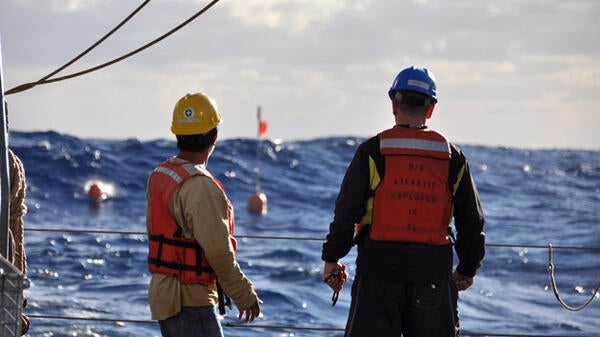
Within the contours of oceanographic data are the stories of great ocean currents, tiny plankton, and life-sustaining nutrients at the surface of the sea. University students learn to study ocean properties through plots and graphs of these data, but rarely do they get hands-on experience with the instruments that generated them. A new BIOS summer course aims to change that by introducing students to the methods and technologies that have become the bread and butter of modern oceanography.
Oceanographer Recognized for Innovative Research
March 24, 2015
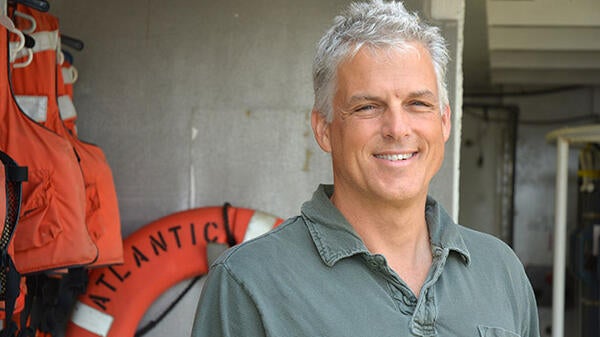
In the clear waters off the coast of Bermuda, Dr. Craig Carlson has spent decades investigating the invisible forces shaping the global carbon cycle: millions of bacteria in every drop of seawater, consuming carbon compounds dissolved into the ocean like sugar into tea. Dr. Carlson’s research linking how microbes interact with carbon in the ocean is now considered vital to understanding the global carbon cycle, and he is being honored with a major award from the leading professional organization for aquatic scientists.
REU Student Presents at Aquatic Sciences Meeting
March 26, 2015
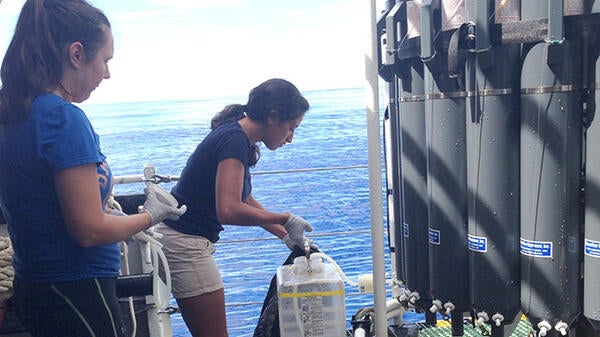
When Esra Mescioglu learned she was accepted to the Fall 2013 Research Experiences for Undergraduates (REU) program at BIOS, she didn’t know what to expect. Frankly, she was a little nervous to leave behind her friends and routine at the University of Massachusetts in Boston. Now, more than a year after her internship in Bermuda, she is thankful her nerves didn’t deter her and is flying from one scientific adventure to the next. Last week Mescioglu is presenting the results of her research project at the Aquatic Sciences meeting of the American Society for Limnology and Oceanography (ASLO) in Granada, Spain, and is quick to share how valuable her experience in the BIOS REU program was.
Scientist at Work: A Conversation with BIOS Biologist Leocadio “Leo” Blanco-Bercial
March 30, 2015
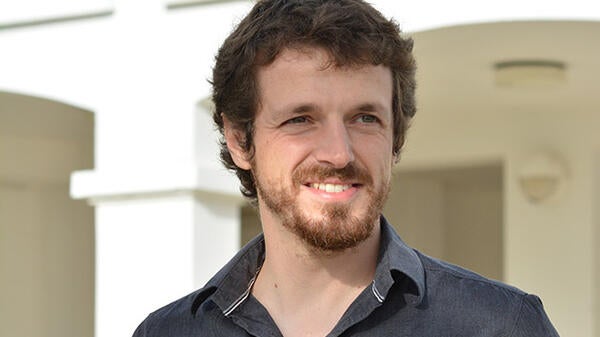
Leo Blanco-Bercial grew up fishing for mackerel and tuna off the coast of his native Spain, but for his career has gravitated to studies of the tiniest of marine organisms: plankton. Blanco-Bercial, 36, began work at BIOS in January with the intention of continuing his plankton studies, specifically their genetics. He also plans to continue educating his Europe-based family, he said. “During visits home, I like explaining how plankton nourish the fish that we love catching and eating.”